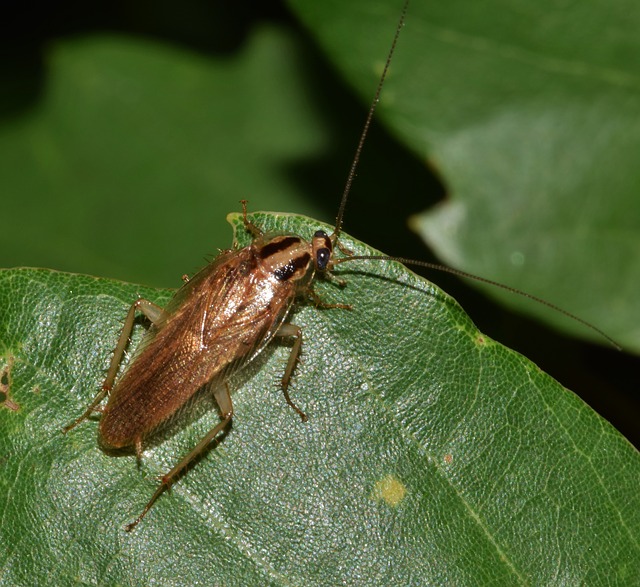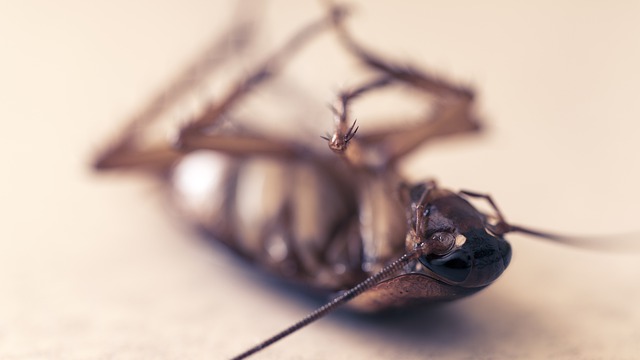Have you ever seen a cockroach passing by in a blur that your first reaction was to shriek at the top of your voice?
Well, we can all agree that these pests are vile and harmful creatures. They even cause food poisoning and asthma!
We know that we share the same sentiments against cockroaches. Remember, even squeaky clean houses are not safe from these pests!
Important Note: If you're tired of pests and want a reliable solution, then you should definitely consider seeking help from a professional pest control company. DIY solutions can be effective, but if you're dealing with a significant pest infestation, you don't want to rely solely on DIY methods. Pest control companies typically don't charge huge fees. You can fill out this form to receive free quotes from the top local pest control companies, and compare the quotes and see for yourself. Then, finally, your pest problems will be eliminated for good.
And, we better do something about it! In this article, we have listed some pro tips you can use in preventing cockroaches from entering your homes.
Pro Tips in Preventing Cockroaches from Entering Your Home

Let us just put it out right there: cockroaches cause distress!
In fact, there are over 3,500 species of cockroaches existing throughout the world. Part of this distress is knowing that dirty scavengers lurk in your homes.
There is a negative stigma attached to having cockroaches in someone’s house. And, there is a justified reason for that.
Sloppy housekeeping will likely lead to heavy cockroach infestation, and it goes the same with immaculate housekeeping.
Remember, these pests can thrive in any living condition. But, prevention is better than cure. Here are some of the pro tips in keeping your home cockroach-free at least every single day.
Pro Tip #1: Assess the Situation
Cockroaches are very adaptable. The most effective tip to prevent cockroaches from entering your home is to use several methods at the same time.
Even clean houses are not safe from cockroaches; hence the first thing you need to do is assess the situation.
Inspecting and monitoring are effective ways of pest control management against cockroaches.
If you can locate the location of a cockroach infestation or even prevent them from infesting your house, your counteractive pests control efforts are more effective and economical.
One way to do this is to do night “night watch.”
Observing cockroaches with a flashlight can help you control their growing population in your house.
These pests are nocturnal; they are active at night and thrive in dark places. In the course of your inspection, you need to look for both dead and live cockroaches.
Look for their presence among food sources such as stovetops, kitchens, and refrigerators. Also, look in mops and brooms or similar places they like to lurk upon.
Cockroaches like living on cardboard and paper shelters. So, you also need to inspect them in stacks of paper bags, letters, or other items made of paper.
Pro Tip #2: Trap Placement
After assessing the situation of a cockroach infestation, it is now time to use traps and baits against these pests.
It is highly effective to use sticky traps because those are cheaper and more effective. Also, you can add banana extract in your baits to lure cockroaches towards it.
Before you position your traps or baits, make sure that you label the trap, so you know the location of the infestation inside or outside your premises.
Here, you need to place your traps in or near crevices, food sources, moist areas of the house, and dark corners.
If you feel that cockroaches have infiltrated your home, you must place more traps.
Pro Tip #3: Reduce Water Availability
Aside from food, cockroaches also need water to prevent moisture loss. In fact, one drop of water every day is enough to keep cockroaches surviving!
Different cockroaches need different water requirements, but one thing is clear: if you want to prevent these pests from entering your homes, you need to reduce available water sources at home.
It would help if you examined all the sinks inside your homes.
Also, ask yourself some of these questions. Do your faucets leak? If yes, quickly replace the gasket.
Then, you need to check for the faucet opening, and if there is no screen placed on it, you need to cover it with a screen right away.
This will keep cockroaches in using your faucets as entryways inside your homes.
Now, if you leave unattended dishes in your sink, make sure that you clean those dishes in an instant.
Always clean and dry plates, glasses, and eating utensils after each use. An important reminder: never leave dishes with water on them.
This will attract cockroaches, and they may leave their feces which bring harmful bacteria such as salmonella, on your plates, glasses, and eating utensils.
Pro Tip #4: Remove Food Supply
Cockroaches are not picky eaters. They will eat just about anything, including discarded food residue in the trash and even cat feces in the litter box!
Bacteria can remain in the stomachs of these pests for months and may even cause food poisoning among family members if necessary precautions are not practiced.
Once a package of cereal or biscuit is opened, make sure that those are tightly sealed. If not, you can place opened food packages in a sealed plastic food container.
Make sure that you do not use food containers made of paper and cardboard because cockroaches can still infiltrate your food.
And, your opened food should not be left overnight. It’s like inviting cockroaches inside your homes.
Regularly check your dishwashers and microwave for any sign of roaches inside.
You also need to clean spilled food in your kitchen, stovetops, or dining table. Make sure that you consistently clean all surfaces during your food preparations.
Also, always wash and clean your dishes, bowls, utensils, and knives after using each of them. Dry those with a clean towel and keep them in a tightly-sealed drawer.

Pro Tip #5: Eliminate Hiding Places
Remember, cockroaches like to live in dark and tiny places. These areas serve as their breeding places and shelter.
Also, they prefer areas with porous materials such as wood, paper, cardboard, and even cloth. So, even small crevices and cracks can be the perfect hiding places for these pests.
Ensure that you do not keep stacks of paper bags and grocery bags. These paper bags can serve as breeding places for cockroaches.
If you want to prevent them from coming into your house, examine all areas of your home.
From your cabinet drawers, kitchen, toilets, and basements make sure to thoroughly search these areas.
One way you can prevent these cockroaches from infesting your homes is to use silicone caulks.
Caulking is an easy and economical way to seal all cracks and crevices inside or outside your premises.
And, using silicone caulks are highly effective because they are waterproof, flexible, and can’t even be chewed by these harmful pests.
You can also place bay leaves around the house, especially in places prone to roaches to prevent them from entering your home.
Final Thoughts
We can all agree that cockroaches are nuisance pests! And, even worse, they carry tons of harmful bacteria that can place your entire family at risk.
Thinking about this, our distress reaches its highest scale on our mood meter!
Now, we know that you are better prepared to prevent these cockroaches from entering your home.
We hope that our pro tips listed above can be of service when cockroach infestation risks infiltrating your houses.
Remember, be consistent and diligent in monitoring your homes against cockroaches. Just follow our pro tips, and you’ll prevent them from infesting your homes in no time.
Thanks for reading!
